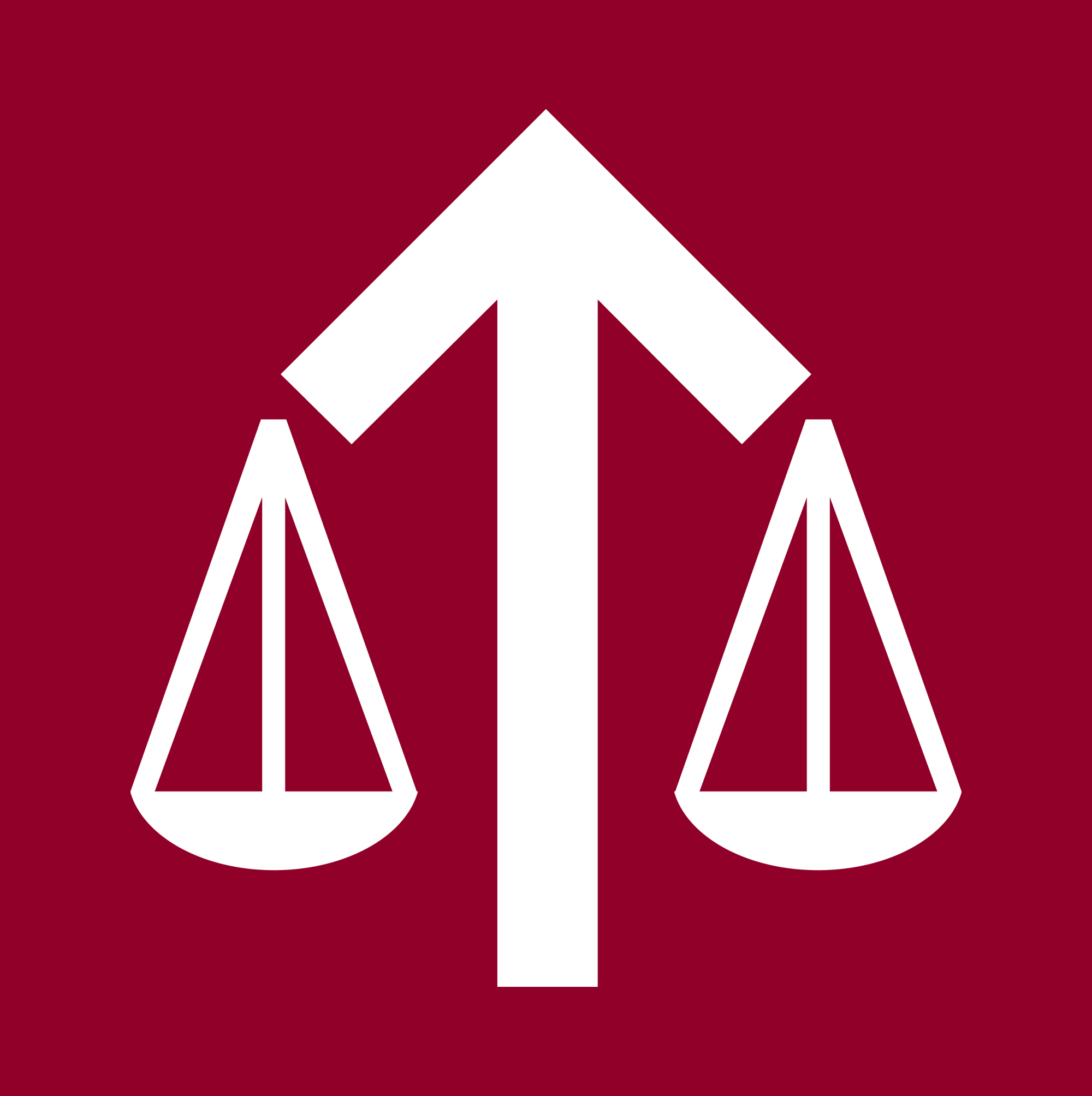
A Course of
Justice
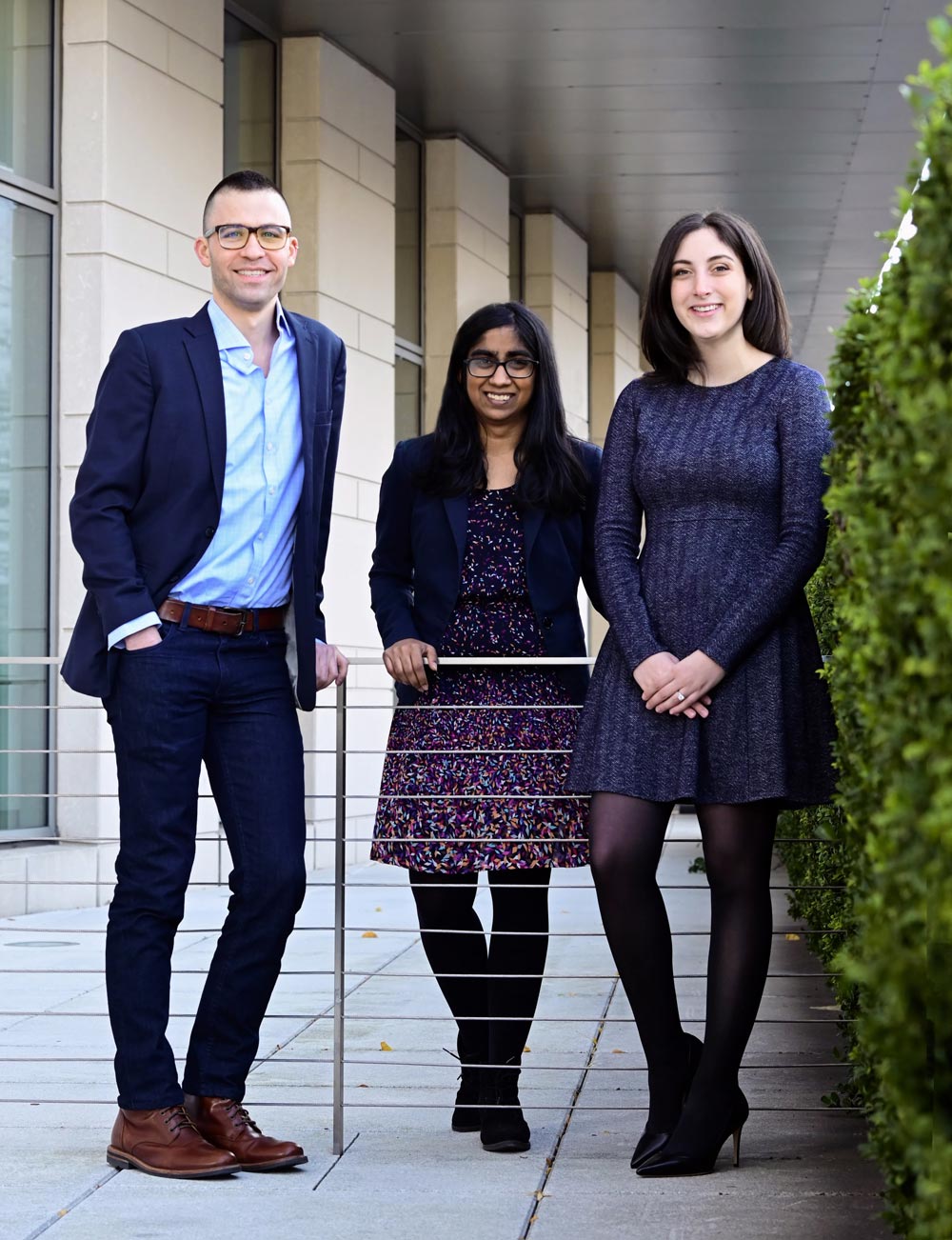
The three students profiled on these pages, all Stein Scholars, are acquiring the legal skills to make an impact for the underserved, whether immigrants, workers, children, or anyone who is powerless. And while each one carved their own unique path in coming to Fordham, all are united in their goal of changing individual lives—and the world—for the better.
Lea Aftimos ’23
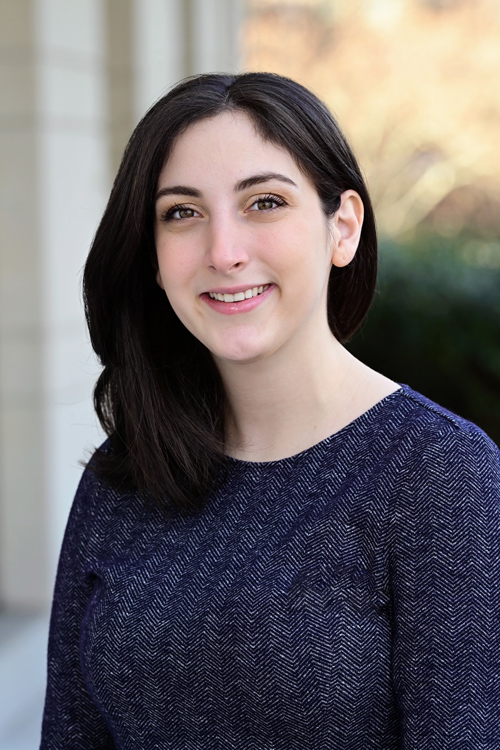

y parents came to this country from Lebanon—they were Arab Americans in a post-9/11 world and I saw the effect that had on them. I grew up in Miami, a city of immigrants, so I got to see the holes in a system that seems to prioritize the needs of the rich. The differences are very stark in that city, where you have mansions on one block and homes in disrepair on another. I’ve seen people pushed further and further out of their neighborhoods because they can’t afford to live there anymore.
I was lucky to go to private school, where college counselors were assigned to each student to help with applications and point us toward grants and funds for financial assistance. We had so much more support than the average Miami public school student, not to mention connections and networking opportunities. If you don’t have those kinds of resources, it makes it that much harder to find employment.
Access to a Green Card
For people who have money, there’s a clear pathway to getting a green card. For one thing, you can hire an attorney who is not overburdened with clients. That makes a difference in terms of outcomes. Everyone deserves to be on an even playing field—no one is better than anyone else because of where they live or what they have. Seeing all this helped shape what I wanted to do with my career and life.
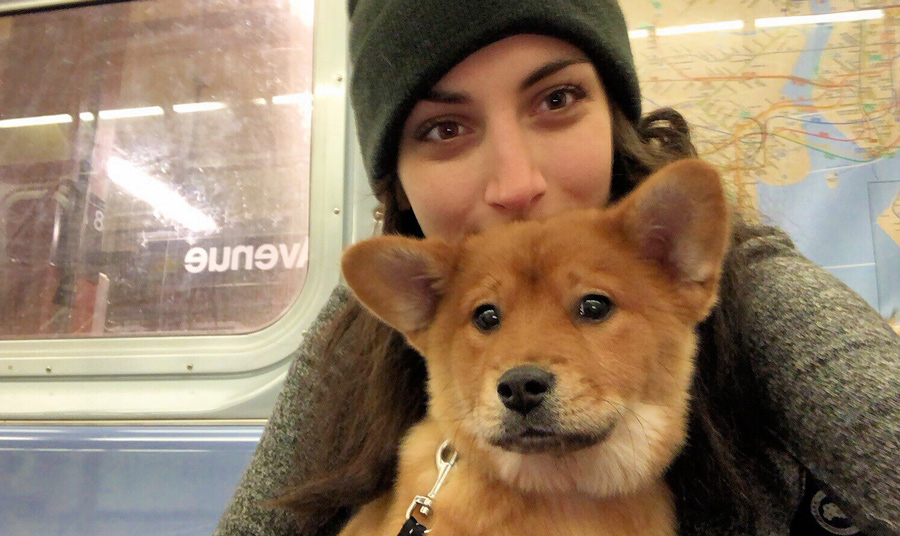
Volunteering x 3
I always knew I wanted to work in the immigration space in some way. During my undergraduate studies, I spent a year in Paris, where I worked at a nonprofit that provided legal services to recent immigrant workers who were facing discrimination. I saw the impact attorneys could have in helping to create safer and more equitable workplaces. Even now, with my classes, I volunteer with a few different organizations. I work with unaccompanied immigrant children who need pro bono representation, either because they need to be reunited with their parents or to be able to stay in this country legally. Lots of times, these kids end up in immigration proceedings without an attorney representing them. That’s why organizations that provide legal aid are so important. I also volunteer remotely with the Miami-based Office of New Americans. I help people fill out their Temporary Protected Status applications to avoid deportation. During the pandemic, I worked with a group that helps undocumented people in New York City, most of whom weren’t eligible for federal help, apply for COVID-19 relief. Juggling classes and volunteer work takes a lot of organization, but it’s important to me to have things in my life outside of law school to keep me balanced, like my rescue dog, Mochi (below), who takes me on walks every day.
The Case That Stays with Me
I’ve been working with a young woman from West Africa who would have been subject to the practice of female genital mutilation if she’d stayed in her country. Her mother helped her flee to the United States to protect her, but she had no legal standing or asylum here. My job is to help the attorneys research the case and fill out the paperwork needed to move it forward. During her family court hearing, we were able to secure the orders to get her case to immigration court. Honestly, if I can help just one person move through their asylum claim, I will feel extremely fulfilled.
Anthony Damelio ’22
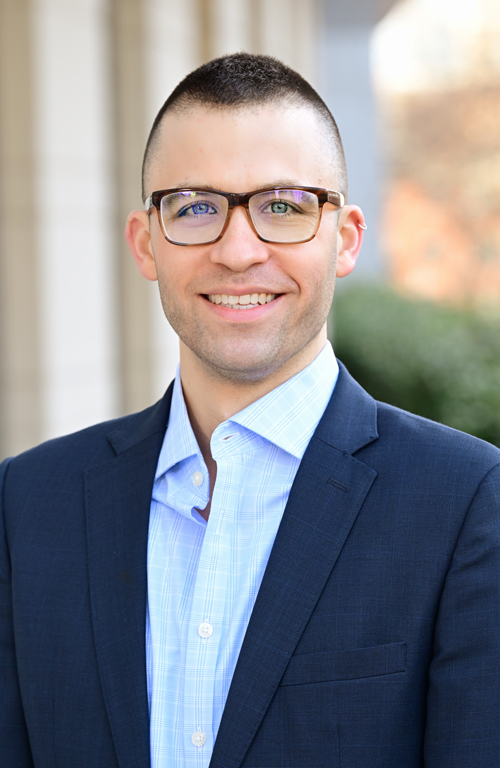

always wanted to be a lawyer, though it took a few years. I took the LSAT back in 2007 as a college senior, then traded law for divinity, graduating with a Master of Divinity from Yale. After three years as a pastor of a Presbyterian church in Atlanta, I returned to New York. I needed to use my skills in a different capacity to drive social change for those who needed it most.
Standing with Those on the Front Lines
The COVID-19 pandemic has shined a spotlight on both the deplorable working conditions endured by many frontline and low-wage workers and the limitations of our federal government to offer health and safety protections. During my work this past summer at Kakalec Law, I helped a client who worked at a Manhattan grocery store, packing items for those who could afford to stay home during the pandemic. After contracting COVID herself, she returned to work, only to experience persistent sexual harassment by her new boss. When she reported it, she was promptly terminated. As we filed her claim, she cried tears of joy at being able to address the injustice she experienced. These workers, often immigrants and frequently low-paid, deserve the same protections many of us enjoy—and I was proud to play a small part in making that possible.
Why Law School Felt Essential
Before I came to Fordham, I worked as the deputy director of New Immigrant Community Empowerment (NICE), a grassroots organization headquartered in Jackson Heights that serves and organizes immigrant workers. While I loved our work, I recognized that my place in the movement was not out front leading a nonprofit but rather advocating for workers using my particular skills—and developing new ones as a lawyer. I sought out Fordham for its historic commitment to public interest lawyering and to work with Jennifer Gordon, a pioneering advocate for immigrant workers. My time as a Stein Scholar and my coursework with both Professor Gordon and Professor James Brudney have shaped my future advocacy in untold ways. (Learn more about what Professors Gordon and Brudney have to say about immigration and worker rights in “Big Ideas.”)
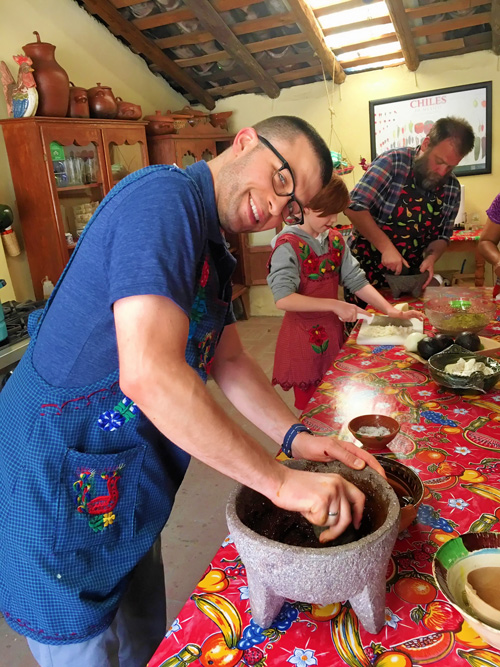

Life After Law School
In the fall of 2022, I will begin my two-year Skadden Fellowship at Catholic Migration Services, in its Workers’ Rights Program. My work will focus on implementing the HERO Act, a New York state law enacted in 2021 that provides groundbreaking health and safety rights in the workplace. In most states, workers are forced to rely solely on the inadequate protections provided by the Occupational Safety and Health Administration. Under the HERO Act, workers have a private right of action to find relief. What that means is if employers fail to provide required COVID-related protections or inhibit employees from forming workplace safety committees, workers can retain attorneys to reclaim their rights. I look forward to educating workers in collaboration with my former nonprofit, NICE, and another community organization, the Coalition for Immigrant Freedom, and using my life and work experiences to advocate for those who traditionally cannot access legal services. My time at Fordham has prepared me exceptionally well for this next step.
Aswini “Winn” Periyasamy ’22
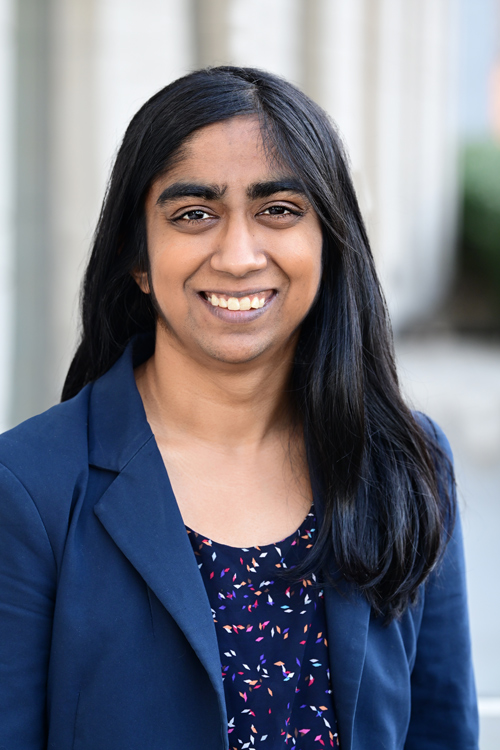

Taking a Leadership Role
About two years ago, I got involved in an organization called the People’s Parity Project. PPP brings together both law students and newly minted attorneys interested in legal advocacy to prioritize building a more just system. This year, I co-founded a PPP chapter at Fordham, as well as organizing for state and federal judiciary reform alongside other law students and lawyers around the country. During my time at Fordham, among my other commitments, I’ve also externed with the New York Civil Liberties Union’s voting rights team under Adjunct Professor Perry Grossman, where I was investigating potential vote dilution in school board elections on Long Island.
I also worked with the Center for Popular Democracy’s immigration unit, doing research on the 2020 census and ICE collaboration with local police. I am on track to graduate in 2022 but will be finishing my degree part-time. That’s because in January, I’ll be starting a new job with New York City Council Member Erik Bottcher (District 3), as the office’s legislative and budget director. My work so far has focused on advocating from the outside. Now, I’m excited about being able to see how the full system works.
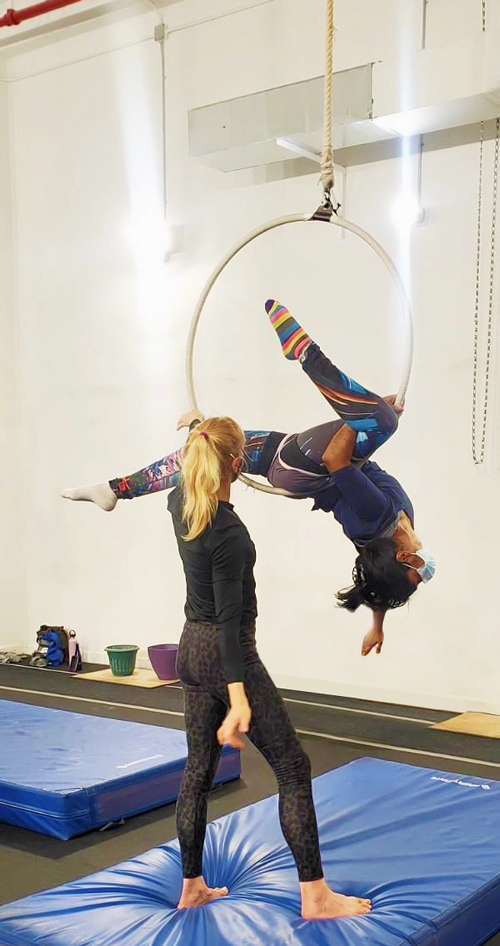

Opening Doors for Others
I am committed to creating opportunities for other people. My parents came here from India, and I saw the challenges they faced. A lawyer I consider a close mentor says that if a door opens and you can get through, you bring someone else with you. Then you figure out how to keep the door open, so you can keep bringing folks with you. And when they ask, “What can I do for you?” tell them, “Go unlock the side door.”
The point is, when opportunities open up, we can’t leave anyone else behind. I have had so much good fortune in my life. I want to make sure those doors stay open for others for as long as I can.
High-wire Act
With all these commitments, it’s not always practical to take a step back. But I do spend as much time as I can with friends and loved ones. The more I can be in my community and in conversation, the more perspective I get. Besides that, I watch a lot of movies with my dad through video chats and try to get in time doing aerial dance, including trapeze, silks, and hoop. Aerial is very physical. And while it seems scary, it opens up parts of my brain I don’t normally use. I get to turn off the analytical side and be more in tune with the moment. That’s important, because doing public interest work is a marathon, not a sprint. I know I may never see my ultimate goals come to fruition in my lifetime. In the meantime, we have to take care of ourselves and each other.